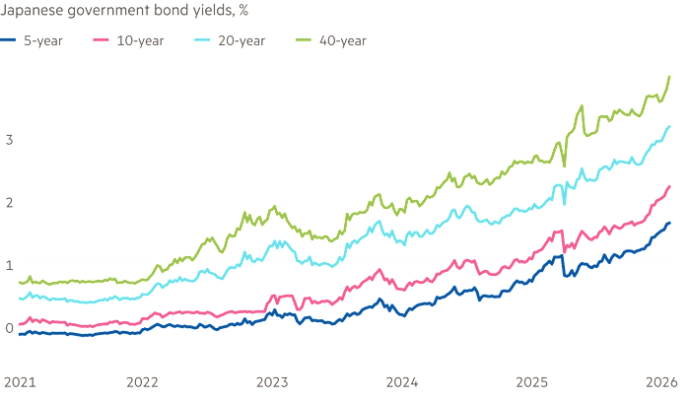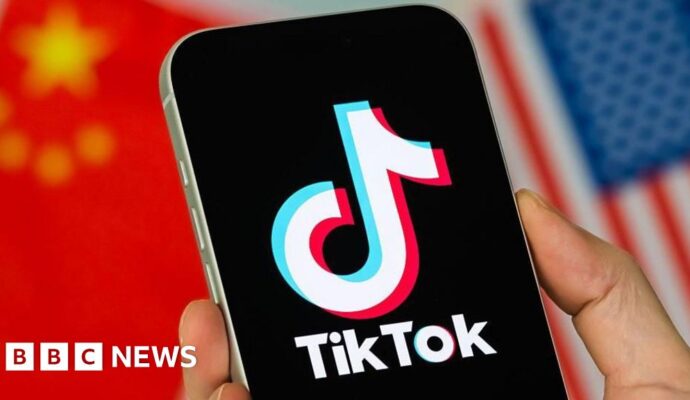
Unlock the White House Watch newsletter for free
Your guide to what Trump’s second term means for Washington, business and the world
Washington and Beijing’s TikTok deal will hand ByteDance roughly 50 per cent of the app’s American profits despite US shareholders owning the majority of the business, according to people familiar with the talks.
Five people briefed on the deal, which the White House said valued the spin-off at $14bn, said that valuation related to a new joint venture between ByteDance and new investors to operate the app’s American operation. But they said additional sources of US-related income will flow to the Chinese parent company.
“It’s a perfect deal, control belongs to US capital, [but a] majority of profit goes back to ByteDance,” said one of the people, an investor in ByteDance.
The financial details suggest that the modest valuation the White House gave for the popular American arm of the short video app is partly explained by ByteDance’s larger claim on future US earnings.
ByteDance’s international revenues were worth $40bn of the Chinese’s company overall 2024 sales of $155bn, with its US TikTok arm providing the largest chunk of its overseas business.
The joint venture with investors approved by the Trump administration would run the US version of the app and oversee the powerful recommendation algorithm underpinning the software.
President Donald Trump signed an executive order in the Oval Office on Thursday to approve the agreement and provide a 120-day window to finalise the details.
TikTok’s status in the US had been in doubt since last year when Congress passed a law mandating ByteDance divest its US operations over privacy and national security concerns.
The TikTok US joint venture brings in new money from Oracle, private equity group Silver Lake and Abu Dhabi’s MGX, which are set to take about 45 per cent of the equity. A group of new and existing American investors in TikTok will take 35 per cent.
ByteDance has been allocated 19.9 per cent — the most allowed by US law.
But people with knowledge of the deal said ByteDance could earn closer to 50 per cent or more of the US entity’s profits through the licensing agreement for the algorithm, or other services and profit-sharing agreements.
The people cautioned that the deal remained subject to changes as it continued to be finalised. TikTok and the White House did not immediately respond to request for comment.
“We are pleased that the company and the US government reached a framework agreement,” General Atlantic, a large US shareholder, said in a note to investors on Thursday, obtained by the FT. “We expect a final agreement and closing to occur within 120 days.” General Atlantic declined to comment.
Trump said China’s President Xi Jinping had signed off the deal, but the Chinese government has not made its approval explicit — as the two countries remain locked in complex trade talks.
Asked about the deal on Friday, China’s foreign ministry said it was “pleased to see companies conduct commercial negotiations on the basis of market rules and reach a solution that balances interests in line with China’s laws and regulations”.
The outlines of the TikTok deal revealed in an executive order published on Thursday led some national security experts to question aspects of the agreement, such as whether licensing the TikTok algorithm from ByteDance would fully resolve national security concerns.
John Moolenaar, the Republican chair of the House China committee, said he wanted the leadership of the new TikTok entity to appear before his panel next year. He said creating a majority American-owned entity was an “important” step in satisfying the law Congress passed last year but not the only requirement.
“The law also set firm guardrails that prohibit co-operation between ByteDance and any prospective TikTok successor on the all-important recommendation algorithm, as well as preclude operational ties between the new entity and ByteDance,” said Moolenaar, who added that he would conduct “full oversight” of the agreement and had requested an “urgent” briefing from the Trump administration.
While the order says the joint venture will operate the algorithms, code and make content-moderation decisions, it also indicates Oracle will provide “intense monitoring” of software updates likely from ByteDance.
ByteDance in 2022 told US officials that the platforms’ source code “contained 2 billion lines of code”, which Oracle estimated would take three years to review, according to the US justice department in its case against TikTok.
“Trump’s TikTok deal is a cosmetic fix that trades long-term security for short-term optics,” said Jim Secreto, a former US Treasury official involved in overseeing TikTok during the Biden administration.
“By allowing TikTok to continue licensing technology controlled by engineers in Beijing, it ultimately benefits ByteDance, one of China’s leading AI companies.”
Reporting by Ryan McMorrow, Zijing Wu, Cheng Leng, Antoine Gara, James Fontanella-Khan, Demetri Sevastopulo and Cristina Criddle.


